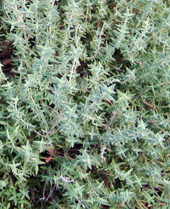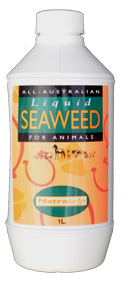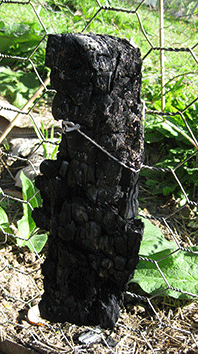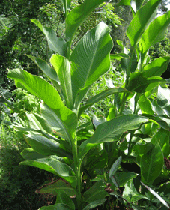| Organic Seeds | Edible Plants | Organic Pest Controls | Books | Tools, Propagation & Fertilisers | Sprouting & Microgreens | Poultry Supplies | Specials & Gift Ideas |

Top

We will send an email to this address*
when is next available
* we will use this email address only for this notification and then we will delete it.
 Home
Home
Green Harvest Organic Gardening Supplies is permanently closed as of 5pm on 1-11-2023.
We will not be taking orders by this website, in person, by phone or email. Our display garden and retail shop are closed forever.
Read more...
Phone:07 54357000
Phone calls will only be responded to sporadically and only in reference to orders placed prior to 2-11-2023. All the useful growing and organic pest management research and resources are available on this website for a while still.
Chook Health
Helpful Herbs
Helpful herbs can be added to the daily greens, used in the nest boxes or grown alongside the fence:
Catnip - insect repellent, use in nest boxes
 Coriander
- nutritious daily green with antioxidant properties, high in Vitamin A and K
Coriander
- nutritious daily green with antioxidant properties, high in Vitamin A and K
Dandelion - acts as a tonic
Dill - antioxidant, relaxant, respiratory health
Fennel - believed to stimulate laying
Garlic - believed to prevent worms
Lemon Balm - antiviral, antibacterial, rodent repellent
Marigold - believed to stimulate laying
Marjoram - believed to stimulate laying
Mint (all kinds) - insecticide and rodent repellent
Nasturtium - laying stimulant, antiseptic, antibiotic, insecticide, wormer
Oregano - combats infections
Parsley - high in vitamins, believed to stimulate laying
Sage - antioxidant, anti-parasitic, general health promoter
Thyme - antibacterial, antioxidant and anti-parasitic
Wormwood - growing as a hedge is believed to discourage ticks
Find more information on herbs here.
Helpful herbs can be added to the daily greens, used in the nest boxes or grown alongside the fence:
Catnip - insect repellent, use in nest boxes
 Coriander
- nutritious daily green with antioxidant properties, high in Vitamin A and K
Coriander
- nutritious daily green with antioxidant properties, high in Vitamin A and KDandelion - acts as a tonic
Dill - antioxidant, relaxant, respiratory health
Fennel - believed to stimulate laying
Garlic - believed to prevent worms
Lemon Balm - antiviral, antibacterial, rodent repellent
Marigold - believed to stimulate laying
Marjoram - believed to stimulate laying
Mint (all kinds) - insecticide and rodent repellent
Nasturtium - laying stimulant, antiseptic, antibiotic, insecticide, wormer
Oregano - combats infections
Parsley - high in vitamins, believed to stimulate laying
Sage - antioxidant, anti-parasitic, general health promoter
Thyme - antibacterial, antioxidant and anti-parasitic
Wormwood - growing as a hedge is believed to discourage ticks
Find more information on herbs here.
 Nutrient Supplements
Nutrient SupplementsConsider giving the chooks a nutrient supplement when weather or predators prevent free-ranging. It is also useful to give the chooks a bit of a boost once they start moulting. Natra-Kelp Liquid Seaweed For Animals provides a wide range of vitamins, minerals, trace elements and amino acids. Improvements in animal health can include increased resistance to internal parasites, improved condition of feathers, and higher quality of products such as milk, eggs or meat. Other choices can be sprouted grains, such as wheat, barley or oats.
A homemade tonic can be made using:
- 3 cups of layer mash
- 1 teaspoon of liquid seaweed
- 1 tablespoon molasses
- 1 tablespoon apple cider vinegar
- 1 clove of crushed garlic
Chooks also require an ample supply of shell grit for digestion and calcium. It is useful to dry and crush eggshells for them as an extra calcium supply.

Charcoal can provide real health benefits for your chooks. The charcoal is able to absorb toxins from the food or water, improving hygiene and chook health. While it has no nutritional value itself, charcoal contributes to keeping an animal's digestive system healthy. Charcoal is a laxative and can help move the impurities it absorbs out of the body. If worms or worm eggs are present, it can to some degree help move them out of the body as well. Poultry feed containing 1-1.5% charcoal has resulted in increased laying rate, a longer laying period and increased egg weight. Charcoal in the diet will also reduce the odour of chook manure. Slow burning is essential to charcoal making; you can damp down a fire that is burning too quickly with some water. Once it's all cooled down, crush it up a bit and throw a handful in with the poultry feed or where the chickens will scratch.
Dust Baths
This is how hens keep themselves clean; the dust also helps to kill parasites. Try to provide an area for a dustbath that stays dry no matter how rainy the weather is. Adding diatomaceous earth, once known as sharp sand, or woodash to the dustbath will give extra protection against lice and mites. Wood ash has a very nice texture; the chooks may choose to eat it too.
This is how hens keep themselves clean; the dust also helps to kill parasites. Try to provide an area for a dustbath that stays dry no matter how rainy the weather is. Adding diatomaceous earth, once known as sharp sand, or woodash to the dustbath will give extra protection against lice and mites. Wood ash has a very nice texture; the chooks may choose to eat it too.
 Hot Chooks or Cool Chicks
Hot Chooks or Cool ChicksWe have a responsibility to ensure the welfare of the animals we keep. Over the hot Australian summer make sure your flock doesn't get heat-stressed. Take a critical look at the chook house and make sure there is shade available in the hottest part of the day.
Learn to recognise the signs of heat stress in chickens: they will walk around with their beaks open (chickens don't have sweat glands, so regulate heat via their respiratory systems) and/or wings spread; appear slow and lethargic; they will definitely go off the lay. In extreme cases chooks can die from heat stress. One of the best things you can do is plant a good-sized patch of Queensland Arrowroot. Even on the hottest days the centre of the patch will feel 'air-conditioned'. Treating your birds to a cool shower with the hose can also help. If the flock is confined, ensure the pen's not overcrowded. Some people place bottles of frozen water in the water dispenser or just around the pen to keep the temperature down on hot days.
You can find books on poultry care here.
 Home
Home
Green Harvest Organic Gardening Supplies is permanently closed as of 5pm on 1-11-2023.
We will not be taking orders by this website, in person, by phone or email. Our display garden and retail shop are closed forever.
Read more...
Phone:07 54357000
Phone calls will only be responded to sporadically and only in reference to orders placed prior to 2-11-2023. All the useful growing and organic pest management research and resources are available on this website for a while still.
No liability will be accepted by Green Harvest, its owners or employees as to the accuracy of any information. No responsibility will be taken for damage to property or persons due to information given about a product or technique. No responsibility will be taken for the loss of a crop or income due to information given about a product or technique.
 Shopping here is private and secure.
Shopping here is private and secure.
Copyright © 2001 - 2024 Green Harvest Organic Gardening Supplies
No part of this website may be reproduced without permission of the owner